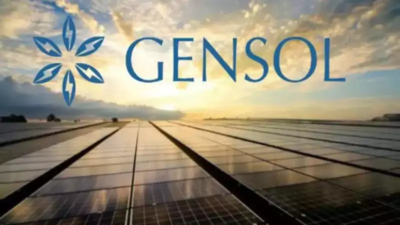TikTok's Future in the U.S. Remains Cloudy Amid Tariff Conflicts

In the ever-evolving saga surrounding TikTok's operations in the United States, recent developments have left many in the tech industry pondering the app's fate. The uncertainty stems from a complex intertwining of political maneuvering and international trade issues, particularly those precipitated by President Donald Trump's ongoing tariff war.
Earlier this week, there was a palpable sense of urgency as the deadline of April 5th loomed for a potential resolution regarding TikTok's future. Various stakeholders, from major corporations like Amazon to the controversial founder of OnlyFans, were reportedly vying for a chance to acquire the popular social media platform. However, insiders indicate that despite the flurry of interest, only one proposal was seriously under consideration by the White House — a consortium led by Oracle.
This Oracle-led group included several prominent investors from ByteDance, TikTok's parent company, who were prepared to reinvest in a newly formed U.S. entity. The proposal aimed to license TikTok's algorithm from its Chinese developers while also restructuring the ownership to present TikTok as a more independent entity. This plan was poised for announcement before President Trump made his startling tariff declaration earlier this week, which effectively derailed any immediate possibilities for a deal.
On Friday, shortly after Trump announced a 75-day extension on the impending TikTok ban, ByteDance responded by clarifying that any agreement regarding the app would require approval under Chinese law. This statement highlights the significant hurdles that still exist between U.S. and Chinese regulatory frameworks. The context reveals that just a day prior, Trump had suggested that China might be open to approving a TikTok deal contingent upon easing tariffs, but the tone shifted dramatically after his tariff announcement.
For those closely monitoring this convoluted situation, the fatigue is palpable. As Trump has attempted to navigate the complexities of the U.S.-China relationship, his actions have arguably undermined what could have been a solid pathway for TikTok's continued operation in the U.S. His longstanding ties to Oracle, notably through friend Larry Ellison, were expected to bolster business opportunities by reviving a previous security strategy known as Project Texas. Yet, this proposal has faced scrutiny as the current administration appears less focused on national security concerns than its predecessor.
As it stands, TikTok continues to operate in the U.S. for the time being, largely due to a lack of enforcement from Trump's Department of Justice regarding a Congressional ban that had the backing of the Supreme Court. Hosting providers for TikTok, including tech giants like Apple, Google, and Oracle, seem to be continuing their service to the application, despite the legality of their actions being questionable. The outlook remains uncertain; unless Trump eases tariffs against China, there remains a real possibility that TikTok could still face a ban.
This ongoing saga of TikTok, filled with political implications and international tensions, encapsulates the intricate relationship between technology and geopolitics, leaving many to wonder whether this farce will come to a satisfactory conclusion any time soon.






















